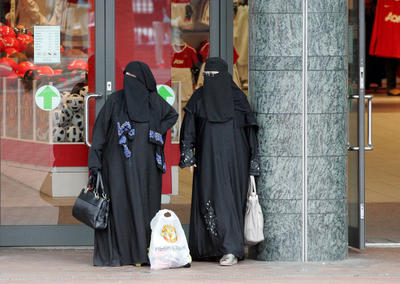To their great consternation, non-Muslims in Malaysia are even finding that the state’s application of Islamic law for ‘Muslims’ also encroaches on their lives.
In order to fully understand the impact of Islamic law in contemporary Malaysia and how to soften it, a nuanced examination of the political landscape is needed.
This begins with Malaysia’s independence, when the country federated, and state governments were constitutionally granted the exclusive power to create family and inheritance law applicable to Muslims within their state. The states also received the ambiguous power to punish ‘Islamic’ criminal offences, and were granted the constitutional authority to create courts to adjudicate cases arising under the state’s interpretation of Islamic law.
These continuously expansive powers — allowing for the creation and administration of local versions of Islamic law — are cherished by state governments; and their authority here was cemented by a late-1980s constitutional amendment making state court interpretations of Islamic law, for the most part, unreviewable by federal courts.
In the past, federal legislators and judges have preferred a more liberal interpretation of Islamic law than the states. Malaysian commentators have thus suggest that the situation could be addressed by stripping the state governments of their control over Islamic law and, instead, establishing a national Islamic legal system. Such reforms, however, would be very difficult to implement, and the potential follow-on effects are further questionable. State governments are likely vigorously to fight any attempt to constitutionally strip them of one of their last vestiges of legislative and judicial power. Strict Islamists will also fight such attempts to disarm state authority — unless they believe the national government will apply a similarly stringent version of Islam.
Even if the Islamic legal system could be nationalised, past practice is no guarantee of future returns. The federal judiciary might once have been a bastion of liberalism and champion of liberal (critics said ‘Westernised’) version of Islam. Over the last 15 years, it has undergone many changes. Augmenting this, Islamist interpretations, of a particularly inflexible nature, have become increasingly popular in contemporary Malaysian society — backed by powerful institutions with national reach. In short, the voice of liberal Islam is diminishing. The fact is, in Malaysia today, a majority of Muslims may well favour statutes very similar to those in the states and favour expansive application of them, and it is only in a few regions, however, Muslims favouring liberal Islam currently exercise significant political power.
In light of the challenges Malaysia’s federalism has triggered, it would be ironic if the federalised nature of Malaysia’s legal system was also the key to setting the liberal voice free, to shape dialogue and argue for their more liberal interpretation of Islam.
It was the US Supreme Court Justice Louis Brandeis who once argued that federalism was a blessing — particularly in times of social change and disagreement over responses. Federalism allowed the states, Brandeis said, to become ‘laboratories of democracy’ where different policies and laws could be tested. Back to the Malaysian context, whilst conservatives are probably stronger than liberals overall, there are some states where liberals are powerful. And it is here we may be able to see the ‘laboratories’ of Islamisation play their part.
Still, if the states were given the chance to embrace diverse interpretations of Islam how many would do so? This is unclear. One comparison can be drawn with Indonesia, where local communities have recently been handed the power to enact local ‘Islamic’ regulations. Most that have exercised this power have enacted conservative regulations — including ones requiring Muslim women to wear head coverings when receiving government services. But that said, state-level politics in Indonesia and Malaysia are difficult to compare — particularly when it comes to Islam.
Recent developments in the Malaysian state of Perlis suggest that some Malaysian state governments — under the right political circumstances — could come to champion a liberal version of Islam. The Mufti of Perlis has taken liberal positions, championing progressive laws and restrained applications, putting him at odds with the religious conservatives who dominate neighbouring states. The highly publicised controversy has increased awareness around the country about the diversity of Islamic legal interpretation among classically trained scholars and Islamic intellectuals alike. It has empowered liberals around the country by demonstrating that liberal positions are not associated with Westernised liberals alone.
The Malaysian federation contains few Perlises right now — laboratories of progressive Islam. If others are to arise, this will be because the champions of more liberal visions of Islam have studied state politics, learned to speak to a wide audience and adeptly grasped the skills necessary to influence the mechanisms of state politics. Beachheads at the leading institutions that train future state bureaucrats and judges — such as the International Islamic University of Malaysia — will also need to be established.
There are groups in Malaysia already working hard towards these goals. Those who wish to see a more robust, multi-faceted debate about the future of Islam in Malaysia should support them. The stakes are high enough.


Malaysia is a federation and a democracy only in name. Hence, the suggestion to look at Perlis as a model where Federalism works is inappropriate. In reality, it was one particular Mufti who had some progressive views. He has since resigned. Furthermore, the ex-Perlis Mufti (Dr. Asri) is liberal in a limited way – i.e. in the interpretation of some aspects of Islam – and illiberal in others (He has suggested that Malaysian of Indian heritage who demonstrated in 2007 to return back to India and be grateful that they are not poor like Indians in India).
The comparison with Indonesia is also flawed as Indonesia post-Suharto has a maturing democracy and moving in the right direction whereas Malaysia is regressing on all fronts.
Until and unless, Malaysia takes the course Indonesia did, or the ruling party reforms – there is not much hope for liberal values in Malaysia.